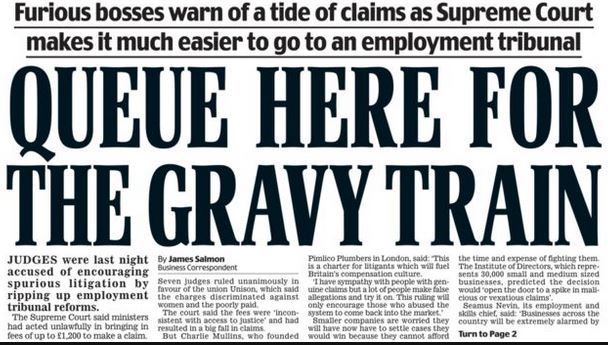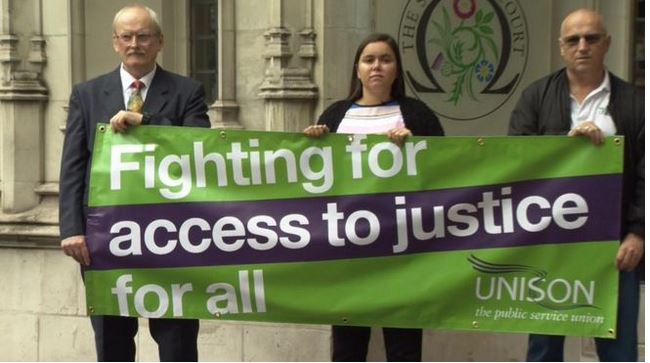Getting There
This is the third part of a 3-part blog post. Part 1, Where We Are, and part 2, Tribes and Tribulations, were published over the previous two days.

The UK stays in the EU
It should be screamingly obvious by now that it is essential that the UK stays in the EU. But we have to do it in a way which is consistent with our values, the wider principles of democracy and our so-called “unwritten” constitution – thanks, Gina Miller. My ideal scenario for the next few years would look something like this:
- May, or a credible alternative (see below) “caretaker” Prime Minister, steers us through to a transition period which is, in all but name, the status quo;
- Public opinion, armed with a few home truths, shifts to a clear majority in favour of Remain: two-thirds should do it;
- At some point, triggered by some opportunist event, a General Election is held: Tories lose big time. Labour, alone or in a formal coalition with the SNP (and even any Green MP), form a majority government
- A suitable Prime Minister buries the “Leave” message and can concentrate on the important challenges facing the country: basically, what’s left of my “Pressing Priorities” in part 1.
- After a suitable interval, the UK begins, at last, to play a useful and constructive role in the EU’s affairs. We have much to offer: perhaps the subject of a future post!
Sounds simple? Obviously not: there are dangers and pitfalls on the way and the chances of success are slim: it all depends on the timing.
Dangers and Pitfalls:
- Public opinion will never shift enough until sufficient people see through the greatest con trick perpetrated by the Tories, basically Cameron and Osborne, aided by their media “outliers” – see “The Great Conflation” below;
- The Crazies and any rump from the defunct UKIP form a populist party like the FN or AfD and peel off committed Labour leavers;
- The right-wing media – and some Tory Crazies, will simply play dirtier and dirtier tricks, aided by sympathetic companies exploiting lax regulation of Big Data;
- The danger of a Crazy as PM for a crucial period in the negotiations;
- The EU and/or EU27 run out of patience with the UK’s wavering position as to what it wants (Perfidious Albion 2.0?)
Reasons for Hope:
Addressing each of the above in turn:
- It’s all in the timing. I suspect Labour has the bigger task on its hands with its traditional working class base. The Tories most inclined to vote Leave will simply die of old age. Yesterday, 29 March, marked 12 months until we “leave” the EU: the Daily Express front page looked like this:
 I knew the Express had long since given up any attempt to be newspaper, but this was a classic of its genre. All that was missing were pictures of Churchill and Vera Lynn and it would have been perfect! How about a few bluebirds? It would be funny if it wasn’t so delusional. Just how “uncurious” do you have to be to lap up this stuff?
I knew the Express had long since given up any attempt to be newspaper, but this was a classic of its genre. All that was missing were pictures of Churchill and Vera Lynn and it would have been perfect! How about a few bluebirds? It would be funny if it wasn’t so delusional. Just how “uncurious” do you have to be to lap up this stuff?
On the same day, the Guardian published a handy checklist of the 12 concessions made by the UK government, all clearly spelled out 15 months ago. The detail is here, courtesy of PressReader; the list, in short, Ease of Brexit, Article 50 talks sequencing, Transisiton Deal, “Implementation” period, Time Limit, Money, Trade deals, Hi-tech customs solution, Free movement, Rule-taking and role of the ECJ and Fishing. (PressReader is a Canadian digital publisher who republishes interesting and informative articles from around the world.) Express readers had to make do with some sub-sub-Churchillian waffle from Britain’s very own mini-Trump.
- Yes, a replacement “UKIP” is a worry. But Labour has a huge army of activists – hats off here to the indefatigable Owen Jones, who, by sheer numbers and organisation, can get Labour’s advantages to its traditional base across., This already happened in the 2017 General Election to some degree. The resounding defeat of the Tories I expect in the May local election – essentially the London results as the media are over-represented there – will give Labour some Momentum: in more senses than one. Tory voters supporting Crazy candidates may also vote for some neo-fascist party, negating the arithmetic.
- Yes, so that’s why the threat of Big Data undermining democracy becomes a very high priority issue any government can sell to the public. Self-evidently, this can best be moved forward by the UK working in full concert with its fellow EU members and officials in Brussels. Only the EU working together, based upon past experience, will be willing and able to take firm regulatory action: it’s a natural fit.
- See comments on Prime Minister below
- Key EU27 countries, including Germany and France, have been remarkably patient and indulgent of the UK’s shifting position so far. Ironically, the threat of terrorist attacks and the need for good shared intelligence works in everyone’s favour.
The Elite: The Great Conflation
Perhaps the greatest deception played on the British public, and swallowed whole by simply too many of us, is what I call the “Great Conflation”, essentially the work of Cameron and Osborne, in opposition between 2008-10 and as government propaganda from 2010. It’s basically this: the meaning of the word “elite” has been fudged to confuse and combine two very different groups of people: (a) the rich and super-rich, who have gained most from the rise in inequality over the past 35 years and (b) professionals, academics: the “liberal intelligentsia” if you like. Both groups were more likely to vote Remain, but for very different motives (a) financial self-interest and (b) through rational analysis and examination of the evidence.
Populist elements in the Leave campaign could then present the referendum votes as a simple “elite v. the ordinary people” binary issue. Privately educated, ex-City stockbroker Mr Slime’s entire shtick was based upon this deception. This all culminated in Gove’s now notorious remark about “the people” not needing “experts”. Added to this was the insidious drip-drip feeding of the American idea that the poor and disabled, i.e. those on benefits, were, per se, undeserving.
A similar fudge happened in the run-up to the invasion of Iraq, when the Bush administration coined the term “weapons of mass destruction”, similarly ill-defined to obscure its meaning. Blair was his poodle on this, and much else.
The Dilemma: Who Is To be Prime Minister?
The tricky bit I’ve left until last: who will lead us out of this mess? Bear in mind the relative strategic, long-term importance of two very different matters:
- UK stays in the EU and the issue is settled in the public mind for at least one or two generations: a key constitutional matter and a statement of the kind of country we want the UK to be;
- Tackling the problems affecting ordinary people’s lives: my “Pressing Problems” listed in part 1.
Self-evidently 1 is strategically more important than 2, as its effects will be felt for generations. Equally obviously, a Tory-led government would grudgingly deal with the minimum tinkering on the “Pressing Problems”, to the extent that public opinion forced them to. The grudging “with strings” pay offer to NHS staff last week is an example. By contrast, a Labour-led government, under Jeremy Corbyn or someone who broadly shares his policy agenda, would find no difficulty in prioritising (approximately) these issues. Labour’s problems would be sniping from the usual quarters about “tax-and-spend” or “back to the 70s” in economic terms.
There are two possible scenarios:
Tories cling to power until after the start of the Transition Period
For nearly all her time as PM, May has played her role extremely badly – see my previous post The Modes of May There are indications in the last few days that, as a reluctant Remainer during the campaign, she may be steering her party towards a “Norway plus” destiny. She dare not speak its name, for fear of upsetting the Crazies and splitting her party – not to mention the hard nut cases of the dreadful (and unrepresentative) DUP.
May is safe for the foreseeable(!) future as any alternative Tory contender would be so much worse: the two favourites with the Tory faithful (aged, out of touch and down to 70,000 members by some rumours: the Tories refuse to publish up-to-date membership figures) are both Crazies. Johnson is a petulant 4 year-old child: a mini-Trump with a bit of Latin; Rees-Mogg is the role model for privilege and lack of any contact with the real world. Why are Little Englanders so impressed simply by a posh accent and a posh school?
And, of course, Westminster Tories are ruthless at getting rid of inconvenient leaders or leadership candidates: Thatcher was stabbed in the back by her Cabinet colleagues when they finally accepted she had gone completely mad. (I speak with authority having seen her in person about a year after the coup – but that’s another story!) Comparison with The Godfather and horses’ heads would be way, way too far-fetched. But May was “crowned” Tory leader – and hence PM – in 2016 clearly because Tory Central Office could not trust their members to do the right thing. So, better the devil you know.
Snap General Election
So, we can probably conclude that a Tory coup or May repeating her mistake of calling a snap general election won’t happen. The May local elections will set the mood at Westminster for the summer and autumn, when detailed, line-by-line scrutiny by Parliament of our so-called “deal” will be debated. So it will either be one too many government defeats in the Commons (or maybe the Lords) or something really silly that captures the public mood. In that situation, Jeremy Corbyn will become Prime Minister.
So, on the more important issue (EU membership), ironically, we will probably get to much the same place in terms of the transition arrangements whether it’s May or Corbyn. (May’s machinations in focusing on internal Tory Party infighting has simply wasted about 15 months: her latest proposals were clearly stated by Barnier and the EU27 as unacceptable well over a year ago. So it’s been all about damage limitation.) But every day that the Tories cling on to power is a day wasted in tackling the “Pressing Problems” – things that would make a difference to ordinary people’s lives.
So, and here’s the crunch: my concerns about Corbyn – even though I agree with practically everything he has said, consistently for many years – and making few friends (in and out of the Labour Party). First, the plus side. He has enthused a new, younger membership to join and fight on the ground – door to door stuff targeted at marginal constituencies: Labour has the foot-soldiers – the Tories clearly don’t. In John McDonnell, he has an able “elder statesman” lieutenant with broadly the right economic policies – see any number of my past posts on economic matters!
And now, my concerns. Corbyn personally carries a lot of baggage from his well-documented past, in relation to his (Bennite) position of lack of enthusiasm for the EU. Principled and consistent though this may be, it means I question his true motive for his current stance as Leader of the Opposition. May’s appalling mishandling of negotiations so far are legion: as a blinkered Home Secretary with no notion of the “National Interest”. As hinted earlier, this may be playing a clever game of gradually moving Labour to an anti-Leave position. As I said, it’s a much trickier task for Labour’s 2 distinct sets of voters: our unfair first-past-the-post voting system requires aspiring Prime Ministers to play that game. And of course, as an “Islington socialist”, Corbyn doesn’t exactly play well in Labour’s traditional heartlands in Northern England.
Cruel and unfair as this may be to a principled man with whom I share most views, that is the political reality. So Labour, under any leader, will also need to play the long game.
Conclusion
So, for me, it’s all in the timing. May has had a relatively good week (Russian diplomat expulsion in 26 countries, etc.) and Corbyn a bad one (Antisemitism, etc.) – see future post. (For the rest of her tenure, she’s been crap.) The important thing is that not too much damage is done. Uncertainty can be put off only for so long. We can only hope that not too many more businesses choose to move to other EU countries. The genuinely seamless border between the Republic and Northern Ireland remains unresolved. The spirit of the Good Friday Agreement and the peace it brings, is in peril. Who knows, the Irish, for so long the colonised power, may save the UK from the foolishness of the Little England mentality.
May bangs on about the unity of the United Kingdom (see next post Bad Week, Good Week): well, give a proper say to the votes of the people of Scotland and Northern Ireland (who voted Remain), to the Welsh. Note also the 96% Remain vote in Gibraltar and the effective veto the EU officials have given to the Spanish Government over that element of the transition arrangements that apply to the status of Gibraltar. Above all, consult and listen!
Step One is to hold the status quo through the transition period. Step Two is to transform public opinion enough for Parliament to do its job. And for Parliament to vote that, all things considered, we remain in the EU and start acting like a grown up member. That will need a General Election and probably a new leader of the Labour Party. Some very promising rising stars in their thirties and forties are emerging.
Those of us on the progressive side of politics need to keep our nerve, be eternally vigilant to the dirty tricks of our enemies (you know who I mean) and to play the long game, for the sake of our future generations.
I won’t live to see that Promised Land, but I hope my children and grandchildren will. That gives me hope for the future.
[Editorial note: Looking at the File Properties details, the source Word document used for this 3-parter was started on 15th March and substantially completed on the 27th. Publication was delayed by my medical issues. I was amused to see that the Guardian lead article for 29th March makes basically the same points. The main difference is this: my 3 posts take nearly 6000 words to make my argument; The Guardian managed it in just 1266, and with more diplomatic language.
Which proves one thing at least – I’m no journalist!]


















